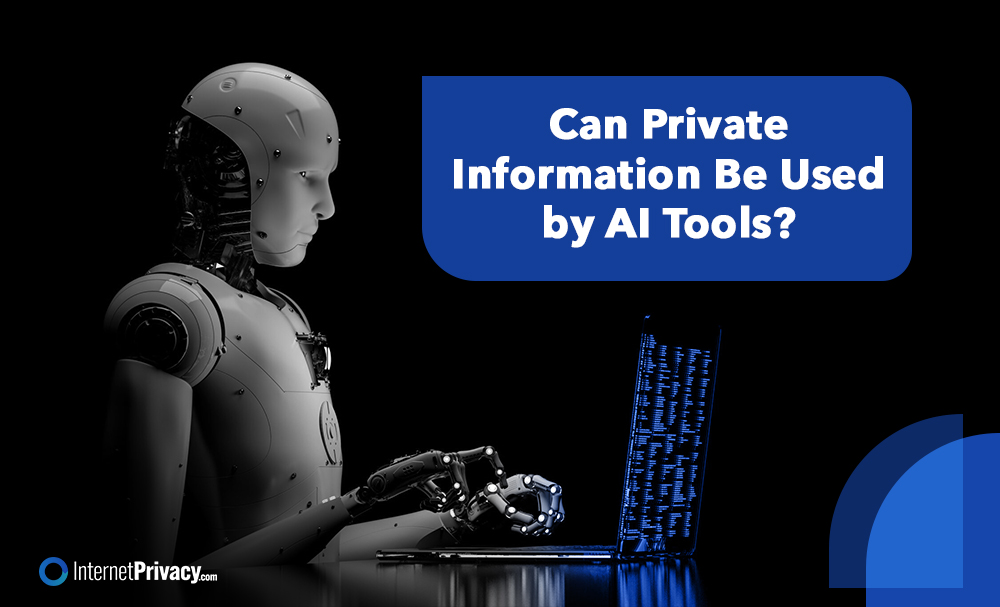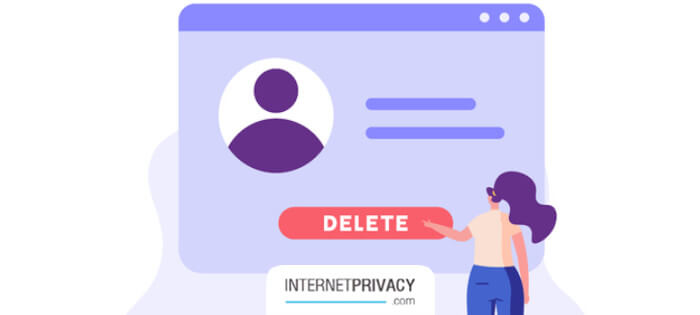Can Private Information Be Used by AI Tools?

Every time you scroll social media, send a quick message, or ask an AI assistant to brainstorm ideas, you leave digital breadcrumbs behind.
These small actions feed a growing pool of data that AI tools use to function and evolve.
At the heart of today’s AI-powered features lies a simple truth: private information powers almost everything, from task management apps to AI writing assistants and image generation platforms.
While this enhances digital experiences, making them smoother and smarter, it also raises serious questions about privacy, ethics, and control.
What Counts as Private Information?
Private information includes anything that can personally identify you, such as financial records, medical data, or interactions with social media platforms.
Today, this data fuels AI models behind web pages, social media posts, and personalized search engine results.
Major players, such as Google and Amazon, have built their dominance by gathering this information.
Free AI writing tools, AI chatbots, and other AI-powered platforms rely on your digital footprint to offer seamless services, but at the cost of your privacy.
How AI Tools Use Private Information
AI tools and agents rely on extensive datasets to learn, adapt, and improve. They use natural language processing to read emails, transcribe audio files, and even suggest edits on Google Docs. This capability enables them to provide more relevant content and more brilliant suggestions, thereby enhancing productivity and creativity.
For instance:
- A free AI tool might offer innovative suggestions for your YouTube videos by analyzing your posting habits and audience engagement patterns.
- An AI writing assistant could help draft cover letters and landing pages based on your uploaded resume, ensuring that the content aligns with your professional goals and brand voice.
- A music generation tool might recommend royalty-free music tracks based on your content themes, helping you maintain brand consistency across different media.
In every case, these systems automatically identify patterns in your personal habits, and that’s where the risks begin. While the benefits of AI-powered platforms are undeniable, the potential for misuse of private information cannot be ignored.
The Risks of AI-Generated Content Using Private Data
The convenience of AI-powered features comes with serious risks:
- Identity theft: Hackers could access AI-generated content stored without strong encryption, leading to potential breaches of sensitive information.
- Bias and discrimination: AI agents trained on flawed datasets may produce unfair or biased results in areas such as hiring decisions or resume builders, thereby perpetuating existing inequalities.
- Surveillance concerns: Government and private organizations can utilize AI-powered platforms to monitor behaviors without obtaining clear consent, raising ethical and legal questions regarding privacy rights.
While free versions and free tiers of productivity tools are enticing, users often overlook the fine print: your data may be used to train the next generation of AI without your complete understanding. This lack of transparency can lead to unintended consequences, making it essential to stay informed about how your information is being used.
Protecting Private Information in an AI-Driven World
You don’t need to abandon all AI assistance to protect yourself. But you do need to stay smart. Here’s how:
- Encrypt sensitive data before sharing it through task managers or social media management apps to ensure your information remains secure.
- Select platforms with transparent data policies — not just free plans that compromise privacy for convenience. Look for services that prioritize user consent and data protection.
- When using AI writing tools, opt for services that allow manual adjustments and control over generated content, giving you the ability to refine and personalize outputs.
- Rely on no-code platforms or app builders that let you customize privacy settings, allowing you to tailor the level of data sharing to your comfort level.
- Anonymize information before uploading it to tools that automatically identify personal details, reducing the risk of exposure and misuse.
Strong encryption, careful tool selection, and a bit of skepticism go a long way toward balancing innovation with privacy. By taking proactive steps to protect your data, you can reap the benefits of AI while maintaining your security.
The Ethical and Legal Landscape
Beyond personal habits, bigger ethical questions loom. Can AI models trained on private data truly be unbiased? Should companies offering free AI tools disclose how your data is being used? These questions are at the forefront of discussions about the future of AI and its impact on society.
Countries like those under GDPR are already setting new standards. Meanwhile, in places like California, laws such as the CCPA give individuals greater control, setting the tone for future debates over AI privacy. These regulatory frameworks aim to protect consumer rights and ensure that companies are held accountable for their data collection and processing practices.
At its core, this isn’t just about tech. It’s about human rights, business writing ethics, and the future of our interactions with AI-powered systems. As AI continues to evolve, it’s crucial to consider the ethical implications and strive for a balance between innovation and responsibility.
The Bright Side: How AI Tools Can Help
Despite the risks, AI assistance offers undeniable benefits:
- Brainstorming ideas: Skip past writer’s block and fill a blank page faster with AI-generated post ideas, boosting creativity and productivity.
- Content marketing: Utilize pre-built templates and high-quality visuals to expedite campaign rollouts, thereby streamlining the content creation process.
- Searchable databases: Turn mountains of unorganized notes into accessible, easy-to-search archives, improving knowledge management and accessibility.
- Task automation: From setting a to-do list to drafting YouTube scripts, AI tools streamline complex workflows, allowing you to focus on high-value tasks.
- Content personalization: Brands can maintain their brand voice and consistency across social media platforms without the need for endless manual tweaks, ensuring a cohesive identity.
When used thoughtfully, AI-powered features can enhance efficiency, inspire creativity, and even enhance knowledge management across various industries. By leveraging AI tools strategically, businesses and individuals can achieve their goals more effectively.
Alternatives and Safeguards
You don’t have to say no to technology — you need to say yes to smarter use. Some options to consider:
- Anonymization: Use platforms that mask your identity when handling personal data, reducing the risk of exposure.
- Human oversight: Trust tools that allow manual review instead of relying solely on AI-generated text, ensuring quality and accuracy.
- Secure platforms: Prioritize AI software that offers precise user controls, particularly around video generation or code generation features, to enhance security and transparency.
Think of it like working alongside a partner: AI agents should support your thinking, not replace your judgment. By maintaining a balance between automation and human input, you can maximize the benefits of AI while minimizing potential drawbacks.
Final Thoughts: Moving Forward with Caution and Curiosity
AI tools are not inherently dangerous — but like any powerful technology, how we use them matters. As we enjoy AI-powered creativity, faster project management, and better content ideas, we must also protect the very thing that powers all of it: our personal data.
The future isn’t about saying no to AI — it’s about making sure that innovation works with the human brain, not against it. By approaching AI with caution and curiosity, we can harness its potential while safeguarding our privacy and ethics.





